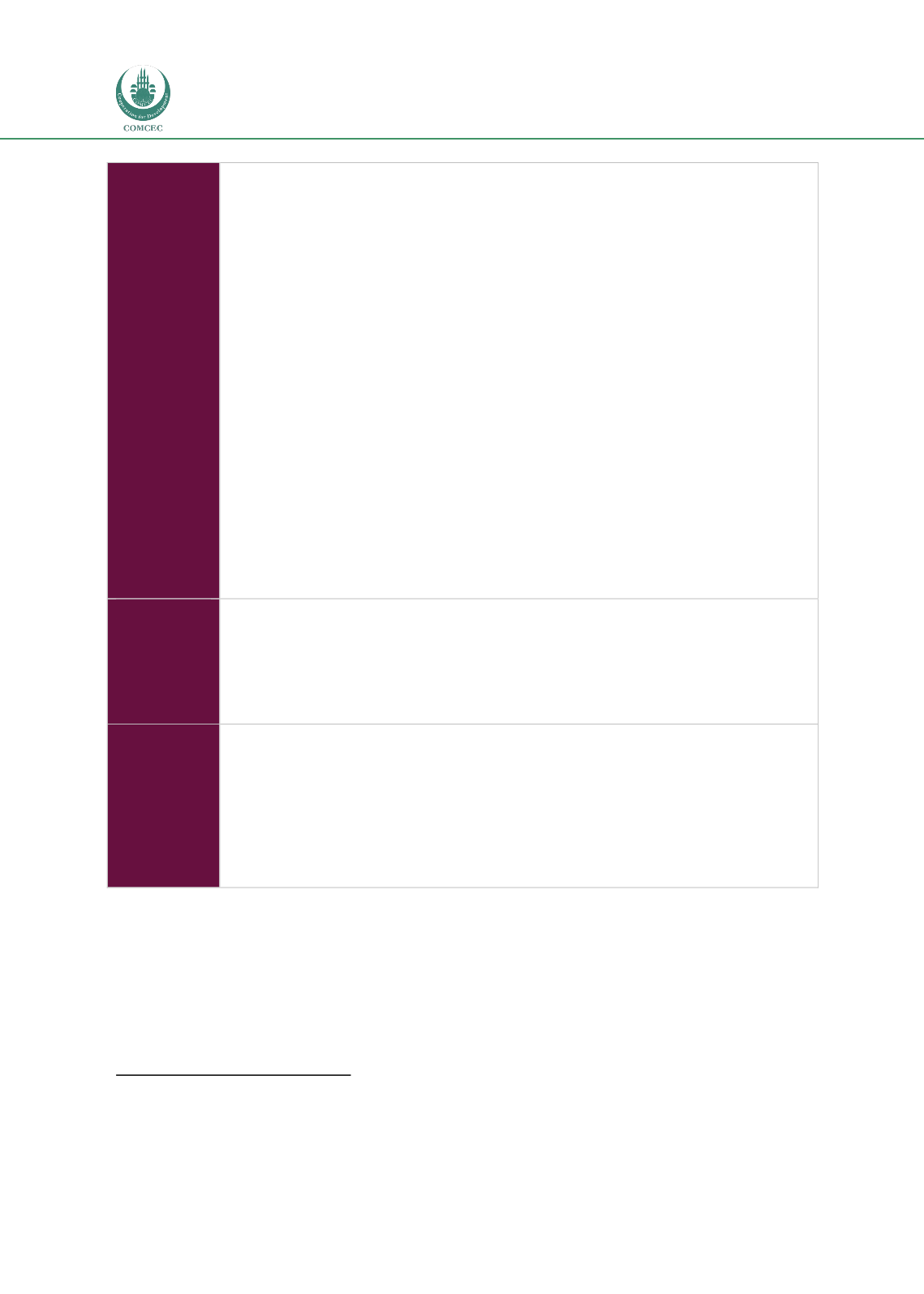

Improving Institutional Capacity:
Strengthening Farmer Organizations in the OIC Member Countries
76
Service
provision
ZNFU provides a number of services to its members, most prominently serving as
the voice of the farmer and of the broader agricultural sector in discussions with
government, where it advocates for increased support to farmers and pro-farmer
trade policy.
Other services and functions it carries out include:
Small-scale input credit support through its Lima credit scheme, where
SHF can obtain 50% financing for inputs on favorable terms from
commercial banks
Credit support for mechanization for medium-scale farmers
Free dissemination of market prices for a variety of crops and regions, by
both website and SMS (updated weekly)
The preparation and dissemination of handbooks, production guides, and
farmer budgets to improve farmers’ technical and managerial capacity
The coordination and execution of planting and production estimates in all
major crops, as an adjunct to the government’s less-reliable and less-
timely surveys, as well as the production of public knowledge goods such
as value chain studies
ZNFU has set up a separate unit, the Conservation Farming Unit (CFU), to provide
training and technical assistance for small- and medium-scale farmers adopting
conservation farming techniques in order to increase yields and reduce costs.
Through the CFU, ZNFU brings training and advice to ~140,000 farmers.
Membership
profile
Membership in ZNFU is open to all farmers, whether small-scale or commercial, in
Zambia. In addition to its core domestic farmer membership, ZNFU also features
commodity association members and corporate members such as large-scale
multinational agri-investors. ZNFU maintains a separate chamber for
agribusinesses along the value chain, including suppliers of inputs, traders, and
processors of agricultural products, to increase coordination.
Business
model
ZNFU is supported primarily through membership dues, which are levied on large-
scale farmers and agribusinesses roughly in proportion to their revenue.
Membership dues are also collected indirectly from small-scale farmers through
their District Associations. In recent years, a significant portion of funding,
especially for new initiatives like the CFU, and for knowledge production in the
form of value chain reports, etc., has come primarily from international donors like
Sweden, the Netherlands, and Norway. Around 48% of funds were from donors in
2011 (latest figures), and while still high, this is down from 65% in 2009.
Results and challenges
110
ZNFU is generally well-regarded by Zambian industry participants, including large-scale
farmers, small-scale farmers, and agricultural inputs suppliers. It is also well-regarded in the
international community, with IFAD citing “capable management and technical staff, and
innovative programmes in support of their members,” as well as credibility with the
government, industry stakeholders, and its own membership.
111
An independent evaluation of
110
Other than where noted, this section is drawn primarily from interviews conducted by Dalberg with ZNFU staff and
Zambian agricultural stakeholders in July 2014.
111
IFAD Country Operational Strategic Outline for Zambia, 2011.

















